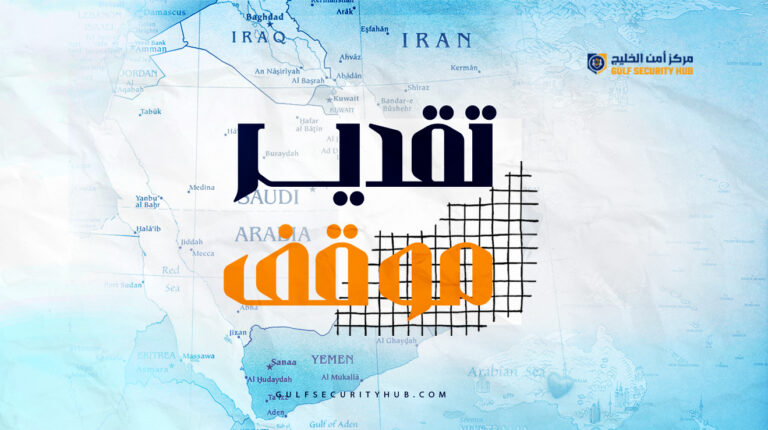Just over a year ago, I participated in a consultative meeting with fellow researchers and experts to discuss the narrative that Gulf states have successfully solidified since 2013 regarding political reform and change movements in the Arab world. According to this narrative, such movements—particularly those linked to political Islam—are inherently destabilizing, inevitably leading to chaos, extremism, economic collapse, and regional and international isolation.
At that meeting, it became evident just how entrenched and influential this narrative had become, compelling civil society groups and proponents of reform to seriously consider developing a counter-narrative to challenge and deconstruct this portrayal. At the time, none of us could have foreseen that the Gulf states themselves would, mere months later, begin to dismantle and reposition this narrative in ways fundamentally opposed to the principles on which they had built their political and media strategies over many years.
For more than a decade, Gulf countries mobilized significant political, financial, and media resources to confront “political Islam,” portraying it as the primary existential threat to the existing political order across the Arab world. This approach was carefully planned and systematically linked to significant regional events, from the Arab Spring uprisings to subsequent conflicts in Syria, Libya, and Yemen.
This narrative was bolstered through robust regional and international alliances designed to undermine both the structural and symbolic foundations of political Islam, with the Muslim Brotherhood identified as the movement’s most prominent and organized representative. Notably, this campaign also targeted moderate Islamic movements that sought to reconcile religious principles with secular governance.
However, recently there has been a notable shift in Gulf policies toward these movements—not merely by accommodating them but actively supporting a more radical form of political Islam. This new approach promotes such models as optimal for balancing domestic legitimacy with international and regional acceptance. Crucially, this reconfigured version of political Islam is also being marketed as capable of fostering open and normalized relationships with Israel.
This shift is particularly evident in Syria. Following the fall of President Bashar al-Assad’s regime on December 8, 2024, resulting from a comprehensive offensive by Syrian opposition forces, Ahmed al-Shara, leader of Hay’at Tahrir al-Sham, secured control of Damascus. On January 29, 2025, al-Shara assumed the presidency of Syria’s transitional phase, supported notably by Turkey, most Gulf countries, and several Western capitals, all eager to exert influence over territory abruptly lost by Tehran.
Given the strategic context, it was expected—and indeed necessary—for Gulf countries to establish a presence in Syria, competing against Turkish influence, itself strategically concerning and comparable to the fading Iranian threat. What is particularly striking, however, is the Gulf states’ rush to support this regime without clear preconditions or solid understandings. Countries like Iraq, Egypt, and Jordan seem far more cautious, clearly recognizing the profound risks and implications involved.
This transformation carries inherent structural contradictions. Supporting a radical Islamic model like Ahmed al-Shara’s regime in Syria, which has a clearly defined and strict religious ideology, might provide immediate geopolitical leverage against Turkey. However, it also exacerbates the fundamental contradiction between the Gulf states’ longstanding narrative and their current actions, implicitly endorsing a radical Islamist movement they had vehemently opposed.
Today, some Gulf states are actively promoting a new form of political Islam that pairs stringent religious doctrine with economic liberalization and capitalist integration. This model explicitly offers assurances to the United States and Europe, particularly concerning sustainable normalization with Israel. Far from a temporary political compromise, this initiative represents a comprehensive regional project, offering the West a new form of Islam—conservative domestically yet compliant internationally, deeply aligned with capitalist interests, and perceived as unthreatening to Israel.
This policy shift raises clear and significant risks. Politically engineered Islamic models, such as the Syrian example, may initially seem manageable but cannot be fully controlled over time due to their inherently radical religious ideologies. Reinforcing such movements, even if currently disciplined, effectively plants seeds for future confrontations, particularly given the fragility of civic and political institutions capable of mitigating or managing the repercussions.
Moreover, this strategic embrace of “flexible radicalism” opens potential fault lines within Gulf societies themselves. Inspired by the Syrian experience, conservative elements within these societies may increasingly demand similar internal shifts toward religious conservatism. Further, the success of this model could encourage other Arab populations to establish comparable regimes that combine radical religious orientations with international acceptability, potentially triggering regional competition and fostering socio-political divisions across the Arab world.
Official Gulf support for radical Islamic governance cannot be dismissed as a mere short-term political maneuver. Rather, it constitutes a risky gamble that could destabilize the entire region. Institutionalizing religious radicalism, combined with normalization and economic openness, creates compounded vulnerabilities that may eventually spiral out of control. It risks reviving among Arab and Gulf societies the conviction that revolutions against current regimes might result not in chaos—as previously claimed by Gulf narratives—but in models akin to Syria’s Ahmed al-Shara.
In summary, what we are witnessing today in the Gulf states represents a fundamental shift in regional visions and strategies. Although the new model may temporarily balance political interests, its potential risks to internal stability and regional relations are substantial. Therefore, Gulf policymakers must carefully examine the long-term consequences of these developments before the situation becomes an uncontrollable political and security crisis with unpredictable outcomes.

